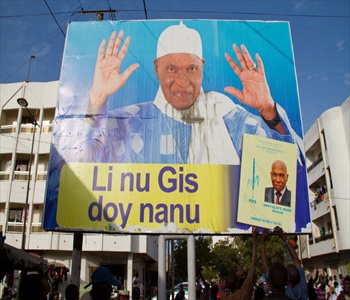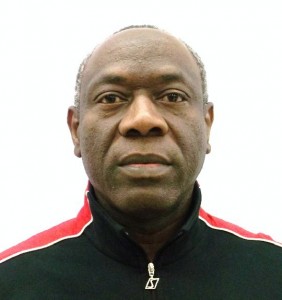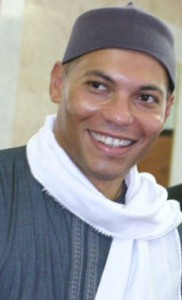The AfricaPaper | Senegal
DAKAR – As the sun beats down in Senegal, thousands march through the capital, Dakar, protesting against President Abdoulaye Wade who refuses to give up power.
At age 85, Wade stretched the legal limits of the country’s constitution and manipulated parliament to secure his third term in power. His move to stay in power at all cost has angered the opposition and triggered his critics to cry foul. Few weeks ago, youths in Dakar throw stones at the police firing teargas on dense crowds.
“Constitutional coup d’état”

Since the 19th century, Senegal has enjoyed a string of free and fair elections, occasionally becoming the envy of many African countries. The past few months have been tense as Wade’s government tightens its grip on power, and filling prisons with his political opponents and journalists.
Dakar has become chaotic in recent months with waves of protesters describing Wade’s action as a “constitutional coup d’état.” In an interview last month, the elderly president claimed he authored the country’s constitution alone when critics charged he has violated it.
“The constitution,” Wade said. “It was me that wrote it, all alone.” But, many disagree and patiently wait for his exit.
After his election in 2000, Wade changed the constitution, limiting presidents to two terms of five years in power. And then, a year after his 2007 re-election, he again change the presidential limit in power to two terms of seven years, giving him the mandate to run in this year’s election.
Wade is known for frequently shuffling his cabinet, and changing the constitution when it suits him. Last month, his appointed Constitutional Court approved his interpretation of the presidential term limit that triggered the wave of protests and violence on the street of Dakar.
He is one of Africa’s oldest leaders that don’t want to fade away easily from the political limelight. Ironically, Wade once chastised African leaders who stay too long in power.
“It is African politics, he becomes a king,” Alioune Samb, Treasurer of the Minnesota-based Senegalese Association, explains why Wade won’t go way. “It comes to a level where he attains a status of living; it is hard for him to leave. Now he is hanging on to power.”
Samb opine that Wade’s refusal to leave power is a disappointment to many Senegalese.
Vigor president
Seeking his third term, Mr. Wade claimed his opponents lack the vigor to lead Senegal as he has done during his 12-years rule. Many Senegalese interviewed by The AfricaPaper in Minnesota described his rule as one marked by crude political statecrafting. Giving the opposition limited time on public radio and TV stations.

Senegal, a country with 12.5 million people depends on foreign aids, peanut farming, fishing, and phosphate. Senegalese expect a political and economic change this time.
“Political and economic change will come,” said Alioune Ndiaye, president of the Senegalese Association of Minnesota. “This time, no one will stay there forever.”
Mr. Wade studied and thought law at Lycée Condorcet in France. He also holds two doctorates in law and economics, and previously served as dean of the law and economics faculty at the University of Dakar. He once claimed that he is the most educated president in Africa.
Corruption
For several years, Wade enjoyed a healthy relationship with his people. Now, many accuse him of corruption and nepotism. When Wade was elected in 2000 he supported the two-term limit for the presidency.
“This year, he changed his mind because of the people around him,” said Ndiaye. “They are engaged in illicit activities and want to cover their tracks.”
Wade’s cabinet has been accused of corruption on many counts. Some of his minister entered office without any assets or money to boast of, these days, many have become filthy-rich and own businesses all over the country
“When this people [Wade and his ministers] came to power they were not rich; they had no money,” said Ndiaye. “Now they own companies, living in big houses, driving SUVs. It is indecent from people leading a poor country; these leaders are so rich.”
As the election fever intensifies, Wade, leader of the Senegalese Democratic Party (PDS) allegedly paid youths from poor areas to rally against the opposition. Supporters claimed that under Wade’s rule, the infant mortality rates have dropped and life expectancy has marginally improved. However, after 12 years, Senegalese want Wade to exit the country’s political stage.
Unemployment
Many Senegalese are unemployed college graduates dissatisfied with Wade for not keeping his promise in providing jobs. Youths find it difficult to get jobs. Wade’s critics said most of his development projects are unrealistic and sometimes do not meet the peoples’ need.
Wade had learnt to massage and spin political messages over the years. When Wade changed his mind for the third term, he said his people are “hungry for democratic continuity,” and satisfied with his leadership.
Senegal is teetering in the level of political chaos seen in West African countries such as Liberia, Sierra Leone, and Ivory Coast. About six people have been killed throughout the country since the elections violence started. The government is making the most out of it.
Dissimilar to many other African countries, Senegal has never had a military coup, and many want it to be as it use to, despite the increasing unemployment, as Wade himself tries to secure his job.
Six million people are registered to vote. Samb and others believe that for an incumbent president, a 34 percent score in the first polls is very low to change the electorate in the second round.
“There is no way that he can overcome that deficit,” said Samb. “It is true he wanted to buy the votes, but that won’t take him too far.”
Nepotism

Wade’s quarrel with his people is more over his son, Karim. Born in Paris, Karim Wade has spent most of his life outside Senegal and has little in common with local Senegalese, but his father appointed him to numerous ministerial positions, and headed major projects in the country.
Wade was a friend of late Gabonese president Omar Bongo, and late Togolese president Gnassingbé Eyadéma. Papa Gnassingbé, as he was commonly known, reportedly killed more than fifteen thousand people during his dictatorship in Togo.
Their sons, Ali Bongo Ondimba and Faure Gnassingbé later became presidents of Gabon, and Togo respectively. Senegalese don’t want this pattern to continue. Mr. Wade has denied allegations of training his son to become the next president.
President Wade’s critics say he is creating a monarchy. Technically, they believe Karim is not a Senegalese and does not attempt to learn any of the local languages. For these reason, they believe, recruiting Karim to lead Senegal would be a tough task. The elderly president’s daughter, Sindjely Wade, serves as his Special Assistant.
“To lead Senegal, we want people who live our lives, and dream our dreams,” said Ndiaye, on Wade’s move to make Karim the next president.
“He started talking about his son, boasting about his abilities, and what he can do for the country.” TAP
Additional reporting by Issa A. Mansaray in Minneapolis, Minnesota.










































I simply sent this post to a couple of my buddies when I trust the majority of what you’re saying here and exactly how you’ve presented. It’s awesome.
Nice information, many thanks to the author. I agree with your thought. Thank you for your sharing. Great post! It’s very useful for me.
Looking forward to another great article.
Cool, thanks!
You should publish more articles like this and you will be famous. You have the talent to become a super star. your article is superb. Keep it up.
Nice website. Very cool content. Thank you!!!
This is a great subject to discuss, I am glad you mentioned it so we can solve our doubts.
Comments are closed.